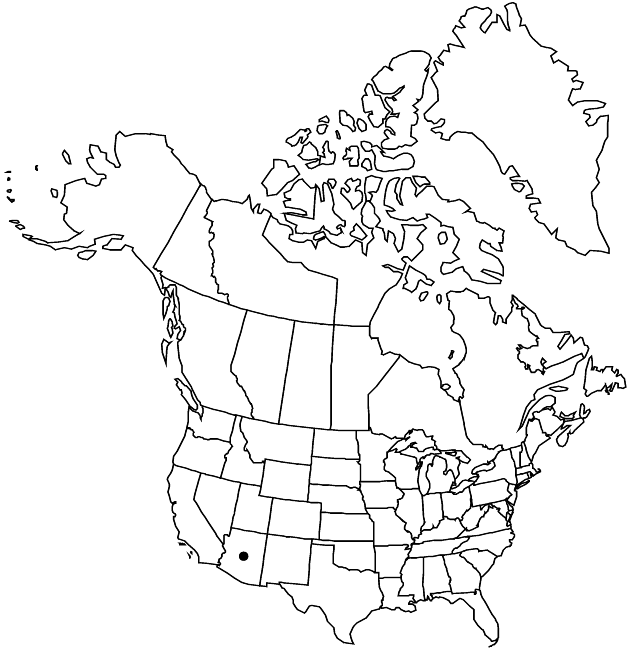Perityle gilensis
Contr. Gray Herb. 56: 39. 1918.
Perennials or subshrubs, 22–70 cm (often in dense clumps, stems upright to pendent or spreading); glabrous or puberulent, often glandular. Leaves: petioles 9–45(–80) mm; blades usually pinnately 3-foliolate (proximal) or 3-lobed, 14–30 × 4–20 mm, lobes much broadened distally, often cruciform, sometimes 3-lobed to divided, ultimate margins entire or lobed. Heads borne singly or (2–4) in corymbiform arrays, 8–11 × 9–12 mm. Peduncles 1–4 mm. Involucres broadly campanulate to hemispheric. Phyllaries 20–30, linear-lanceolate to oblanceolate, 4–7 × 0.8–1.5 mm. Ray florets 8–18; corollas yellow, laminae oblong to subovate, 4–10 × 2–4 mm. Disc florets 70–200; corollas yellow, tubes 1.5–2 mm, throats subtubular to narrowly funnelform, 2.5–3.5 mm, lobes 0.7–0.8 mm. Cypselae narrowly oblanceolate to narrow oblong-elliptic, 2.6–4 mm, margins notably calloused, sparsely short-hairy, sometimes glandular; pappi of 1(–3) bristles 3–4.6 mm, sometimes plus hyaline scales.
Discussion
Varieties 2 (2 in the flora).
Selected References
None.
Key
| 1 | Leaves: petioles 9–25(–30) mm, lobes of mid and distal leaves elliptic to ovate | Perityle gilensis var. gilensis |
| 1 | Leaves: petioles 25–45(–80) mm, lobes of mid and distal leaves linear to long-spatulate | Perityle gilensis var. salensis |
